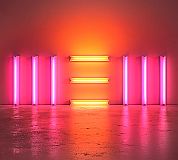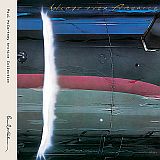
 New  |
 Wings Over America (2013 Remaster)  |
|
|
Today, The Independent of London published these replies from Sir Paul to questions from British fans:
Will you be re-releasing When I'm 64 on the occasion of your 64th birthday in June 2006?
"As the date looms ever nearer, I'm not making any particular plans. However, I've got a feeling that I won't be able to get away with it without doing something."
When you sing live, do particular songs bring back memories? What song do you find the hardest to sing?
"Yes, there is an element of nostalgia, particularly when I sing the early Beatles stuff, but probably the hardest to sing now is a song I wrote for John called Here Today, which takes the form of an imaginary conversation with him. Sometimes, on stage, when I'm singing the song, I just find myself not being able to handle it. If I'm doing a lot of emotional songs, I think: 'What if I blub? What if I start to lose it?' But these days I'm less embarrassed of showing emotions than I was when I was 18."
Of all the other songwriters you've collaborated with since the breakup of the Beatles, which partnership did you think worked best?
"Elvis Costello. He and I sat down with two acoustic guitars and threw ideas at each other. When we were happy enough with the result we made a quick demo to capture the feel. It was also a great privilege to work with Stevie Wonder."
In how many languages can you say, "Hello, I'm Paul McCartney"?
"With a little coaching, all of them. I like languages. In school I learnt Latin, Spanish and German. On tour I have good translators that I work with. They translate what I want to say to the audience, I write it down and learn it.
"In 2003, Putin invited me and Heather to the Kremlin. I was telling him how I like to speak to the crowd, and I said I was going to say 'privyet Maskvichi...' He said "Don't say that, say 'priv-ee-et ribiata'. It means 'Hi guys'. He said it's much cooler. Talk about how things have changed. For years the Kremlin wouldn't let you sing in Russia, and now they're coming to your gig and they're giving you language lessons on the side. I love it."
After your recent gig in St. Petersburg, the director of The Hermitage accused you of damaging the former home of the Tsars. What's the weirdest complaint you've received after a gig?
"At a concert in 1977 to save Venice from flooding, one of our trucks was accused of breaking an ancient paving stone in St. Mark's Square!"
Do you cook? What is your specialty?
"Yeah, I can turn my hand to a bit of cooking and my specialty is probably a fine mashed potato. Tofu is another favorite and quite easy. You just cut it into cubes, stick it in some olive oil in the frying pan with a bit of flavoring... and this is the Paul McCartney cookery show."
Next to the Beatles, of course, who are the greatest rock'n'roll band?
"That's a difficult question. There are a lot of great rock'n'roll bands, among them The Stones, The Who and a thousand others."
What do you do in the last five minutes before you go on stage?
"While it should be something deep and meaningful, it tends to be goofing around with the band."
When someone asks you "Where is home?", where is the first place that comes into your head?
"England."
You've played 3,000 gigs. How many do you remember? And what is the best audience you've ever played to?
"I remember many of the gigs - some bad, some good, some dreadful, some delicious. It's therefore almost impossible to choose a favorite audience, but this year's Glastonbury has to be a strong contender."
What motivates you to go out on the road again?
"I love what I do. I love playing music and the intense feedback you get from the audience. Touring is all about the excitement of contact with people. If you're lucky you get some really great moments when you're soaring, singing good and playing good. I've got a clear recollection from the 1989 tour of a tall guy and his daughter in the crowd. He had his arm around her, and the pair of them were crying during Let It Be. You see people moved by what you're doing. And that is thrilling.
The Beatles first toured America in the aftermath of Kennedy's assassination. Three years ago, you toured America after September 11. Were there parallels between the tours? What sense did you get of the mood of America on both occasions?
"Strangely enough, even though we had obviously not planned it that way, there were echoes of the post-Kennedy years when I toured after September 11. In the Sixties, the American audiences seemed to need something to smile about, to reaffirm their belief in the joys of life and this time around it was strangely similar. I was at JFK airport when the September 11 attacks happened. Immediately afterwards, Heather and I felt a deep empathy for the American people and this developed into a concert for New York, which in turn led to my tour of the US. We had a feeling that the audiences needed the healing power of music. I think that's what made the tour so special."
I run a small-scale variety night in Winchester and we're looking for acts. Would you be interested in playing a couple of songs? We can't afford to pay, but we could cover expenses.
"You wouldn't be the same guy that asked us to play for all the Coca-Cola we could drink, would you?"
Was there ever a time when you wanted to give it all up for the quiet life?
"There was a time when I realized that if we didn't stop, we were only going to get more famous, but I also realized that I loved music too much to give it up."
Though you're unlikely to remember, I met you once, when you were on a train to the West Country during the storms in 1987. You and Linda couldn't have been more courteous, patient and kind towards me. You've met so many fans, how are you able to sustain your interest in all of them?
"Nice question, but the truth is that there are a lot of pleasant people out there who it's good to meet, particularly on a train or boat or plane. I've always found that by chatting you nearly always find out something you didn't know."
Do you still believe that there will be an answer?
"In the end, the love you take is equal to the love you make."
(kindly submitted by PLUGGED correspondent Joan M. Hopkins)
| back |
©1994-2024 Harald Gernhardt. All Rights Reserved